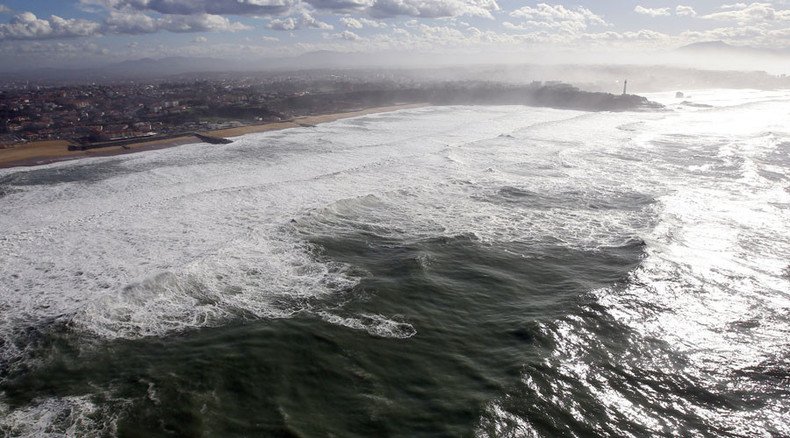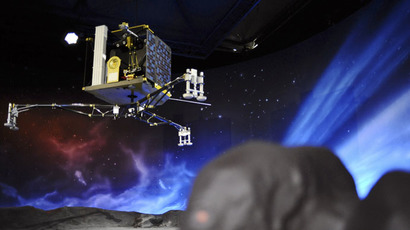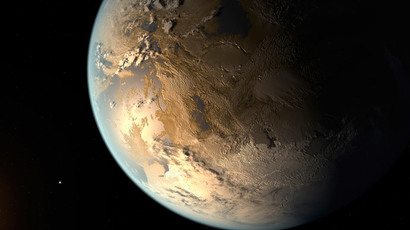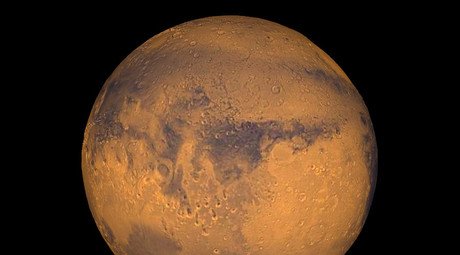Water has been on Earth all along - study of volcanic rocks reveals

Scientists have debated the origins of our blue globe for decades, with theories ranging from water-filled asteroids to icy comets. The Bible mentions water in the very first verse. A new study shows the Book of Genesis might have been on to something.
The Earth's water supply can be attributed, at least in part, to water-containing dust particles that helped form the planet billions of years ago, according to new research, Evidence for primordial water in Earth’s deep mantle, published Friday by Science magazine.
Analyzing the relatively untouched areas of the Earth's mantle, researchers from the University of Hawaii at Manoa have reported that volcanic rocks acquired from Canada's Baffin Island in 1985 contain water with a low amount of deuterium – a hydrogen isotope containing an extra neutron – compared to its level of hydrogen.
The low levels of deuterium indicate that water did not come from a source outside Earth, such as a violent asteroid collision.
"We found that the water had very little deuterium, which strongly suggests that it was not carried to Earth after it had formed and cooled. Instead, water molecules were likely carried on the dust that existed in a disk around our Sun before the planets formed. Over time this water-rich dust was slowly drawn together to form our planet," said cosmochemist Dr. Lydia Hallis, formerly a postdoctoral fellow at the University of Hawaii's NASA Astrobiology Institute and currently a Marie Curie Research Fellow at the University of Glasgow in Scotland.
Though a good deal of the water contained in the dust would have evaporated during the planetary formation process, enough survived to result in the abundance of the life-giving substance on Earth, the researchers said in their report.
Researchers shed new light on the origins of Earth's water https://t.co/PGoqLlk5zupic.twitter.com/9VDoaXqDfc
— The SETI Institute (@SETIInstitute) November 13, 2015The Baffin Island rocks were studied using an ion microphobe, allowing researchers to analyze tiny pockets of glass within the rocks.
"On their way to the surface, these rocks [from the Baffin Island] were never affected by sedimentary input from crustal rocks, and previous research shows their source region has remained untouched since Earth's formation," Hallis said. "Essentially, they are some of the most primitive rocks we've ever found on Earth's surface, and so the water they contain gives us an invaluable insight into Earth's early history and where its water came from."
3D-Reconstruction Video: How #Philae lander made it onto Comet 67b https://t.co/Hm5UeacQggpic.twitter.com/VIgRIwUwj0
— RT (@RT_com) November 13, 2015"It's an exciting discovery, and one which we simply didn't have the technology to make just a few years ago," Hallis said, adding there's more to discover about Earth's water origins and how its supply became so abundant. "We're looking forward to further research in this area in the future."
It was previously believed that comets might have carried water to Earth. Scientists working with the European Space Agency's Rosetta mission, which landed on the surface of a comet exactly one year ago, have said that asteroids were likely responsible for forming the Earth's oceans. In December, researchers said that Comet 67P, had deuterium levels three times greater than water on Earth.
"Today asteroids have very limited water, that’s clear. But that was probably not always the case,” said Rosetta study leader Kathrin Altwegg. “In the earliest period of the solar system, 3.8 billion years ago, asteroids are thought to have crashed into Earth regularly in what is called the late heavy bombardment. At that time, asteroids could well have had much more water than they have today."














